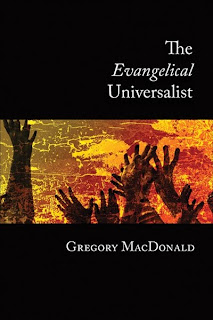 You can now explore the chapters within my most recent book The Authenticity of Faith: The Varieties and Illusions of Religious Experience using Amazon's Look Inside function. (Apologies for those of you outside the US. The Press tells me they are still working to get the book overseas.)
You can now explore the chapters within my most recent book The Authenticity of Faith: The Varieties and Illusions of Religious Experience using Amazon's Look Inside function. (Apologies for those of you outside the US. The Press tells me they are still working to get the book overseas.)
One of the arguments of the book is that the landscape of Christian apologetics has been dramatically altered in the face of functional accounts of religious belief. The first paragraph of the book:
The goal of this book is to answer a question: Why do people believe in God? More specifically, this book is aimed at answering a particular form of this question, a nuance that emerged in the modern period through the work of thinkers such as Karl Marx, Charles Darwin, and, of particular importance for this book, Sigmund Freud. The shift in emphasis in “the God question” occasioned by these thinkers has rendered much of Christian theology and apologetics effectively useless in addressing many contemporary criticisms of religious faith. The playing field has shifted. And a new kind of apologetics is needed.Traditional apologetics has focused on the reasonableness of faith. This is a defense of faith based upon logic, philosophical argumentation, and evidence. However, this project has been rendered impotent in the face of arguments like those of Freud and Marx.
How so?
By talking about the functions rather than the contents of religious belief thinkers like Freud and Marx have effectively changed the subject. I illuminate this distinction a little later in the Prelude:
Let me give an example of the relevant contrast here, albeit somewhat crudely. In classical apologetics a Christian might have been asked to justify her belief that Jesus of Nazareth was resurrected from the dead. What justifies that belief? By contrast, in the wake of the work of thinkers such as Freud, the question morphs and becomes something a bit different, something like this: Why would someone be attracted to the idea of life after death? That is a different kind of question, a question that moves past the propositional contents of faith and begins to investigate the underlying, often subterranean, motivations behind belief-formation itself. These questions are highly destabilizing because few of us are able to plumb the depths of our unconscious motivations. Is it possible that I believe in the resurrection because I am motivated by a deep and unconscious fear of death? Honest people admit that this may be a very real possibility. If so, hasn’t my faith been rendered to be an illusion, a psychological system that helps me cope with an unsettling reality? Suddenly, we are no longer talking about evidence, argument, and reasonableness. We are talking about psychological motivations, often unconscious motivations. And if those motivations are called into question (plausibly so, for who does not want to live forever?) how are we to respond? The tools of classical apologetics are impotent here. Nor is the bible or theology of any help.So how are we to approach the argument of a person like Freud? If theology and the bible are of no help what are we to do? My assessment from the book:
[I]ssues related to human motivation, particularly unconscious motivation, cannot be settled with armchair speculation or biblical analysis. Nor will introspection, even erudite and sophisticated introspection, move us forward. These issues, ultimately, boil down to human psychology. To make any headway with these new criticisms of faith, to show, for example, that faith is more than “wishful thinking,” a person is going to need to know a bit about how religious belief functions in the mind of believers. Apologetics has shifted to the social sciences.When my publisher asked me to write a book description I wrote that the book was attempting a "New Apologetics." He emailed back wondering, "Isn't that sort of a bold claim?"
I replied, yes, yes it is.
Why write a book if you're not being bold?























